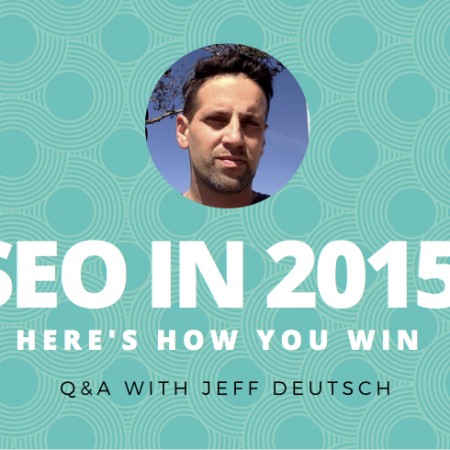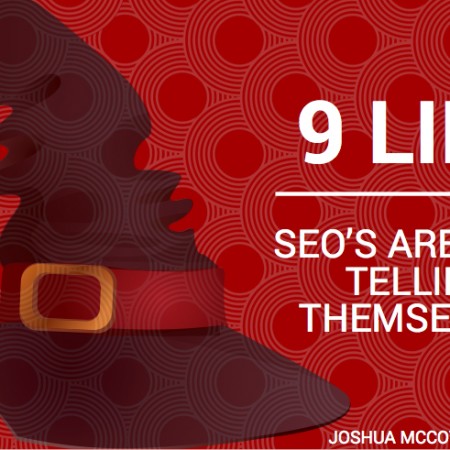#ContentWritingChat February 9 2016 Recap: SEO in 2016 and Beyond with Jeff Deutsch
Rachel is our team Social Media Specialist. If you missed this week’s #ContentWritingChat, you’re in luck! We have rounded-up some of the best tweets from our chat on Tuesday, February 9th at 10 AM CST. Ready to dive in and learn more about SEO? Keep reading! #ContentWritingChat February 9 2016 Recap: SEO in 2016 and Beyond with Jeff Deutsch Join us Tuesday, February 9th at 10 AM CST for another #ContentWritingChat! Guest host: @jgdeutsch! pic.twitter.com/GGILjEbURu — Express Writers (@ExpWriters) February 2, 2016 Our guest host this week was Jeff Deutsch. Jeff is the VP of Marketing for Ptengine and a contributor to Inbound.org. (Check out the post where he got famous: Confessions of a Google Spammer.) Jeff is super knowledgeable in SEO. He joined our chat to share his expertise on the best SEO practices you should be using. We were so excited to have him joining us! Q1: How would you describe the process of SEO (in your own words)? #ContentWritingChat pic.twitter.com/YbhrZiOT2E — ContentWritingChat (@writingchat) February 9, 2016 A1: Convincing search engine algorithms that your content is the most relevant and authoritative on the subject (1/2) #ContentWritingChat — Jeff Deutsch (@jgdeutsch) February 9, 2016 A1: BUT Google’s algorithms are trying to become as good as an expert human on the subject. So write for humans! (2/2) #ContentWritingChat — Jeff Deutsch (@jgdeutsch) February 9, 2016 A1 Optimizing your online content for the human-robot-search-engine that Google has become. #ContentWritingChat — Julia McCoy (@JuliaEMcCoy) February 9, 2016 As Jeff and our CEO, Julia, pointed out, SEO is about optimizing your content for search engines. You want Google to view your content as relevant and authoritative in order to rank higher in search results. Jeff also gives us a very important reminder about making sure you’re writing for humans. Google’s algorithms keep getting better and better and you want to keep up – and this is a key way. Q2: What are some key ways to gain better Google rankings? #ContentWritingChat pic.twitter.com/rLlzKm7CbT — ContentWritingChat (@writingchat) February 9, 2016 A2: ROI-focused keyword research. Most SEOs just look for keywords with huge search volume. That’s not enough. #ContentWritingChat. — Jeff Deutsch (@jgdeutsch) February 9, 2016 A2: Pick the right keywords to describe your content. Make sure keywords are in your title, content, alt-tags, etc. #ContentWritingChat — Kavita Chintapalli (@kavita1010) February 9, 2016 A2: Is your website optimized beyond keywords in the page title, body copy, etc. Think site speed & mobile. #contentwritingchat — Netvantage Marketing (@netvantage) February 9, 2016 Kavita mentioned the importance of keywords in her answer. Make sure you’re selecting the right keywords for your content. Use keywords that people are actually searching for so you can reach them. Include keywords in your post title, throughout your content, and in the alt tags for your images. Don’t forget to think beyond keywords, too. Netvantage brings up a great point about making sure your website is optimized. Google favors websites that are mobile-friendly and have quick loading times. If it wasn’t already obvious by the answers from Jeff, Kavita, and Netvantage Marketing, picking the right keywords is essential! You want to target the keywords your audience is actually searching, otherwise you cannot expect them to find your content. Kavita added a great tip which is to make sure you’re including your focus keyword in your post title, throughout the post itself, and in the alt tags for your images. Very important! However, don’t forget to think beyond keywords. Netvantage Marketing reminds us the importance of having an optimized website. Google favors websites that are mobile-friendly and ranks them higher in search results. You also want to have faster page-loading times because that’s a good thing to Google! Q3: Describe good standards for SEO content in today and the future. #ContentWritingChat pic.twitter.com/5uKTLzQOHL — ContentWritingChat (@writingchat) February 9, 2016 Q3: Make your content relevant AND authoritative. Ask yourself, “Would an expert on this subject link to this?” #ContentWritingChat — Jeff Deutsch (@jgdeutsch) February 9, 2016 A3: Informative & engaging copy that answers users questions. Establish yourself as an authoritative & expert source. #ContentWritingChat — Ryan Clutter (@Ryan1SEO) February 9, 2016 What are some good standards for SEO content? Follow the advice from Jeff and Ryan and make sure all of your content is relevant and authoritative. High-quality content is key first and foremost! Try asking yourself Jeff’s question the next time you’re writing, “Would an expert on this subject link to this?” If not, you might want to step it up! Q4: How does SEO fit into “storytelling” content and why is it important? #ContentWritingChat pic.twitter.com/MPxzMnkK86 — ContentWritingChat (@writingchat) February 9, 2016 A4: Storytelling connects the reader to you emotionally and makes her support you–and willing to share your content. #ContentWritingChat — Jeff Deutsch (@jgdeutsch) February 9, 2016 A4 Storytelling is MEMORABLE. We remember, share, identify w/ a good story. Storytelling = future of good SEO content #ContentWritingChat — Julia McCoy (@JuliaEMcCoy) February 9, 2016 Jeff and Julia provided great answers for this question! Storytelling is important for building a connection between you and your reader. That kind of connection is memorable to your readers and is going to make them want to share your work. Focus on building a stronger relationship with your readers to grow your brand. Q5: What are ways to earn links naturally for SEO? #ContentWritingChat pic.twitter.com/mdzwS4jWVY — ContentWritingChat (@writingchat) February 9, 2016 A5: Build a BRAND. Be known as “that guy” or “that woman.” This will build you a following that will share your content. #ContentWritingChat — Jeff Deutsch (@jgdeutsch) February 9, 2016 A5: Compelling content MIGHT earn some links on its own but w/o manual promotion you’re leaving links on the table (1/2) #contentwritingchat — Andrew Dennis (@AndrewDennis33) February 9, 2016 A5: If you’re investing time & effort into creating great content, you should put equal effort into promotion (2/2) #contentwritingchat — Andrew Dennis (@AndrewDennis33) February 9, 2016 To naturally earn links for SEO, focus on providing quality content for your audience. When you create valuable content for your audience, they’ll want … Read more


